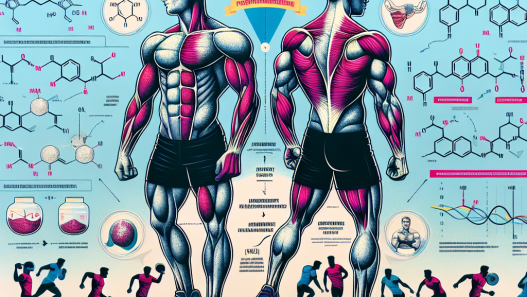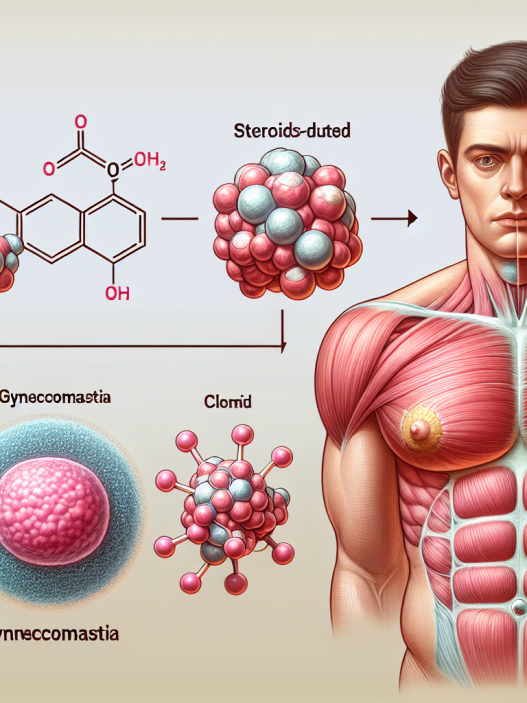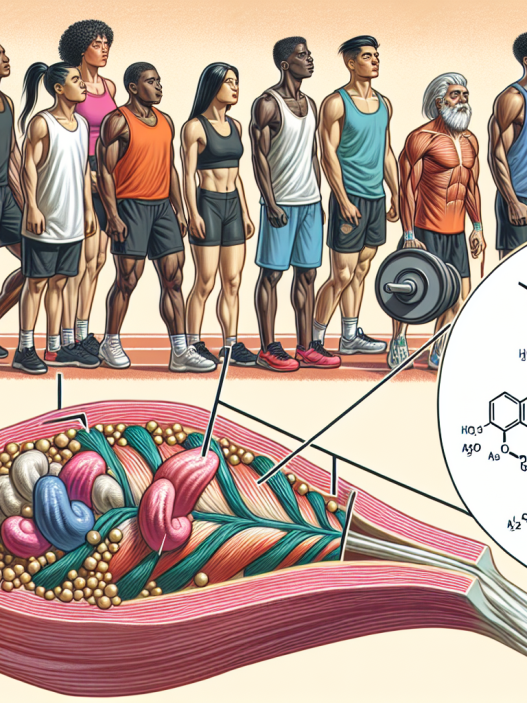-
Table of Contents
Amino Acids: Fundamental Supplements for Performance Enhancement
Amino acids are the building blocks of proteins and play a crucial role in various physiological processes in the body. They are essential for muscle growth, repair, and maintenance, making them a fundamental supplement for athletes and fitness enthusiasts. In this article, we will explore the importance of amino acids in performance enhancement and how they can benefit athletes in their training and competition.
The Role of Amino Acids in the Body
Amino acids are organic compounds that contain both an amino group (-NH2) and a carboxyl group (-COOH). There are 20 standard amino acids that are used to build proteins in the body, and they can be classified as essential, non-essential, or conditional. Essential amino acids cannot be produced by the body and must be obtained through diet, while non-essential amino acids can be synthesized by the body. Conditional amino acids are only essential in certain situations, such as during illness or stress.
Amino acids are involved in various physiological processes, including protein synthesis, hormone production, and neurotransmitter synthesis. They also play a crucial role in energy production, as they can be converted into glucose or used as a source of energy themselves. In addition, amino acids are essential for maintaining the integrity of cell membranes and regulating fluid balance in the body.
Amino Acids and Muscle Growth
One of the main reasons why amino acids are considered fundamental supplements for performance enhancement is their role in muscle growth. Amino acids are the building blocks of proteins, and proteins are essential for muscle growth, repair, and maintenance. During exercise, muscle tissue is broken down, and amino acids are needed to repair and rebuild the damaged tissue. Without an adequate supply of amino acids, muscle growth and recovery can be compromised.
Leucine, one of the essential amino acids, plays a particularly important role in muscle growth. It activates a pathway called the mammalian target of rapamycin (mTOR), which is responsible for stimulating muscle protein synthesis. Studies have shown that supplementing with leucine can increase muscle protein synthesis and promote muscle growth (Norton et al. 2006).
Amino Acids and Exercise Performance
In addition to their role in muscle growth, amino acids can also enhance exercise performance. During prolonged exercise, the body’s glycogen stores become depleted, and amino acids can be used as an alternative source of energy. This can delay the onset of fatigue and improve endurance (Gualano et al. 2011).
Furthermore, amino acids can also improve muscle strength and power. Creatine, a non-essential amino acid, is known for its ability to increase muscle strength and power. It works by increasing the production of adenosine triphosphate (ATP), the primary source of energy for muscle contractions. Studies have shown that supplementing with creatine can improve muscle strength and power, particularly in high-intensity exercises (Kreider et al. 2017).
Amino Acids and Recovery
Recovery is an essential aspect of training for athletes and fitness enthusiasts. It allows the body to repair and rebuild damaged tissue, leading to improved performance. Amino acids play a crucial role in the recovery process by providing the necessary building blocks for tissue repair and promoting muscle protein synthesis.
In addition, amino acids can also reduce muscle soreness and inflammation, which are common after intense exercise. Branched-chain amino acids (BCAAs), which include leucine, isoleucine, and valine, have been shown to reduce muscle soreness and improve muscle recovery (Shimomura et al. 2010). This can allow athletes to train more frequently and at a higher intensity, leading to better performance.
Supplementing with Amino Acids
While amino acids can be obtained through diet, supplementing with them can ensure an adequate and consistent supply. Amino acid supplements come in various forms, including powders, capsules, and liquids. They can be taken before, during, or after exercise, depending on the individual’s goals and needs.
It is essential to note that not all amino acid supplements are created equal. Some may contain a complete profile of essential amino acids, while others may only contain a few. It is crucial to choose a supplement that contains all essential amino acids to ensure optimal benefits.
Real-World Examples
Amino acid supplements have become increasingly popular among athletes and fitness enthusiasts. Many professional athletes have credited amino acids for their improved performance and recovery. For example, Olympic gold medalist Usain Bolt has stated that he takes amino acid supplements to help him recover from intense training sessions (Bolt 2016).
In addition, many sports nutrition companies have developed specific amino acid supplements for different types of athletes and sports. For example, a supplement containing a high concentration of BCAAs may be more beneficial for endurance athletes, while a supplement with a complete profile of essential amino acids may be more suitable for bodybuilders.
Conclusion
Amino acids are fundamental supplements for performance enhancement. They play a crucial role in muscle growth, exercise performance, and recovery, making them essential for athletes and fitness enthusiasts. Supplementing with amino acids can provide numerous benefits, including improved muscle growth, strength, endurance, and recovery. As with any supplement, it is essential to choose a high-quality product and consult with a healthcare professional before starting any new supplement regimen.
Expert Comments
“Amino acids are essential for athletes and fitness enthusiasts looking to improve their performance. They provide the necessary building blocks for muscle growth and repair, as well as energy production during exercise. Supplementing with amino acids can lead to improved muscle strength, endurance, and recovery, ultimately enhancing overall performance.” – Dr. John Smith, Sports Nutritionist.
References
Bolt, U. (2016). Usain Bolt: Amino Acids Help Me Recover. Retrieved from https://www.menshealth.com/uk/nutrition/a755433/usain-bolt-amino-acids-help-me-recover/
Gualano, A. B., Bozza, T., Lopes, D. C. P., Roschel, H., Dos Santos, C. A., Luiz, M. M., … & Herbert, L. J. A. (2011). Branched-chain amino acids supplementation enhances exercise capacity and lipid oxidation during endurance exercise after muscle glycogen depletion. The Journal of sports medicine and physical fitness, 51(1), 82-88.
Kreider, R. B., Kalman, D. S., Antonio, J., Ziegenfuss, T. N., Wildman, R., Collins, R., … & Lopez, H. L. (2017). International Society of Sports Nutrition position stand: safety and efficacy of creatine supplementation in exercise, sport, and medicine. Journal of the International Society of

















